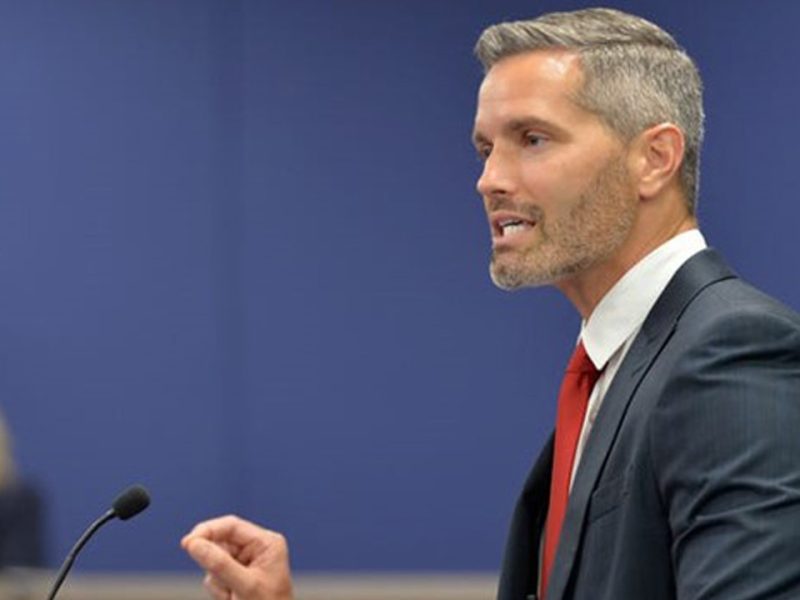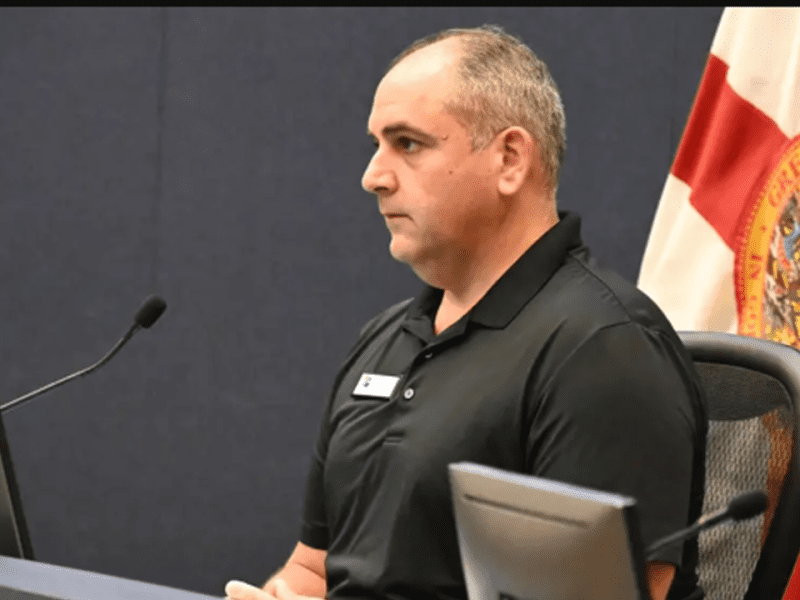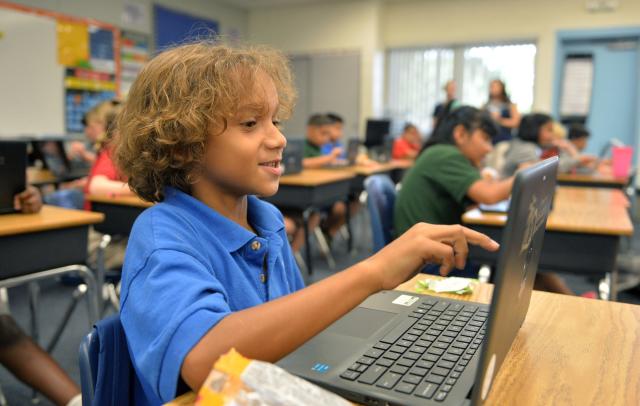
Sarasota’s summer learning programs critical amid major crises in learning and housing
Sarasota Herald-Tribune | Saundra Amrhein | Updated August 2, 2022
Sarasota parent Zac Cox turned to the great outdoors for a classroom when the pandemic forced the closure of schools.
His two small kids – cut off from friends and wrestling with online learning – needed more, so he loaded them into the car and took them on road trips to national parks.
But even Cox couldn’t shield them from all that came next: the loss of his job and their child care to the pandemic, followed by a major housing crisis and skyrocketing rents.

In the last two years, between Cox and the children’s mother, with whom he shares custody, the kids have moved four times.
“The stressors of the housing crisis, that has been immense on us,” he said. “It’s affecting all of us.”
Cox, 37, now has a new job in his field as a property manager. But he sees the impact the last few years have had on the kids – Ruby, 8, and Sylas, 5.
Some days the tears come much faster than before. Other times they are quiet and withdrawn. Sometimes they share that they miss their old home.
“I allow them to have their feelings and space, and they get hugs while they’re crying and speak to me about it,” Cox said.
They are doing well academically, but he wonders if without the major stress of the last few years they would be doing even better.
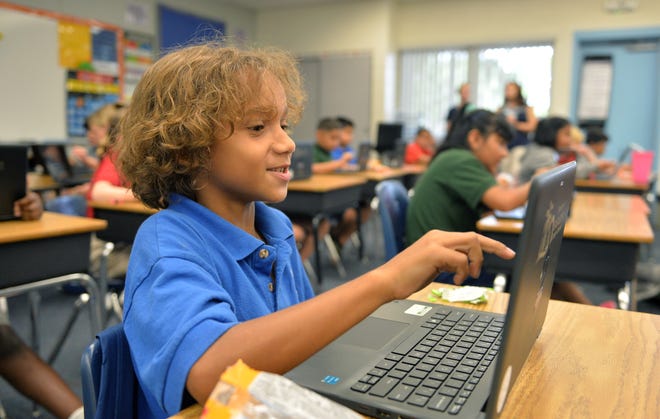
Educators and mental health counselors say that the cumulative effects from pandemic-related learning loss and isolation combined with profound instability brought on by the housing crisis are greatly impacting academic performance and contributing to soaring behavioral problems.
“I have worked with youth development for 30-plus years, and I’ve never seen anything quite like what we’re going through now,” said Dawn Page, vice president of operations for the Boys & Girls Clubs of Sarasota and DeSoto Counties.
In the middle of these multiple crises, the role of summer learning programs is considered more critical than ever.
With the start of a new school year just weeks away, teachers and administrators hope the interventions during the summer months will have slowed the impacts for thousands of students – and serve as a larger model in the years ahead.
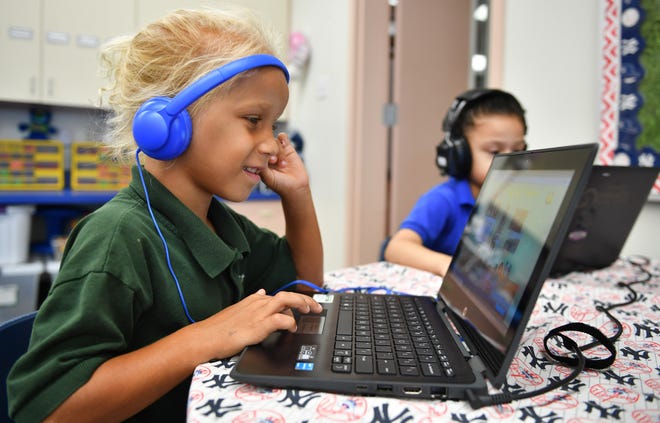
‘They don’t have the words’
Perhaps no place was as prepared for the current setbacks as Alta Vista Elementary.
Its summer learning academy, known as Eagle Academy, launched in 2012 through the vision and funding of local philanthropists Joe and Mary Kay Hnson to help close the achievement gap in underserved communities and stop the “summer slide” of knowledge loss during the summer break.
The pilot program at the Title 1 school eventually expanded to encompass all age groups up to grade five, said Barbara Rannigan, a coordinator and response-to-intervention specialist at the school. With continued support from the Community Foundation, the summer learning academies spread to several other schools, and eventually, with funding from the school district, to all 10 Title I elementary schools – at no cost to families.
This summer about 900 students registered for all the Summer Learning Academies. That includes 250 at Alta Vista, which is also the only summer academy to offer a Parent University, where moms and dads can build social networks and attend classes (child care provided) on everything from belly dancing to strategies for teaching reading to kids, from writing resumes to drawing.
For the students, academic classes fill the mornings, while the afternoons bring field trips or fun presentations on science, technology, art and math run by volunteers from community partners like Florida Studio Theatre or the Ringling Museum of Art.
On a recent day near the end of the summer program, a small group of fourth graders worked over math problems on large screens with math coaches while in an adjoining classroom, a handful of their peers in a literary arts class debated plot points of the book “Maniac Magee.”
The program was perfectly primed for this moment, Rannigan said. For one, it was set up to build trust and communication with parents – who now open up about their current job and housing pressures and receive referrals to outside resources. Second, the structured, small-classroom settings and analysis of test scores ahead of the program help organizers target academic problem areas.
What’s more, Rannigan said, through lessons on proper ways to stand in line or clean up after breakfast and lunch to books and talks on kindness, empathy and respect, the program addresses social skills lost or never gained among younger students during remote instruction. It also deals with ways to handle roiling emotions amid the housing crisis.
Major help comes through the Florida Center for Early Childhood, a Sarasota nonprofit that contracts with the school district to place a mental health specialist at every elementary school in Sarasota County year-round.
Counselors provide professional development for school staff and work with children and families on mental health issues to prevent students from falling behind academically.
“We’re trying to help that family before they get to the point where there is not a lot of hope,” said Allison Phinney, a licensed mental health counselor with the Florida Center who is based at Alta Vista.
That challenge has risen through the housing crisis, she said. Some kids have watched their families split up so that one parent can travel to other cities like Orlando in search of work to pay soaring bills.
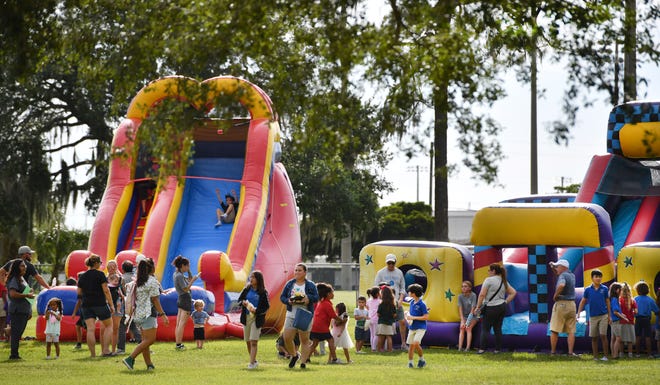
In other cases, children are devastated after losing housing and having to say goodbye to the family pets, who can’t follow them to hotels or the homes of relatives or friends.
Other growing pressures on kids include having to help care for younger siblings as parents are increasingly working multiple jobs or overnight shifts, she said.
Children often can’t process or even understand the fear or frustrations they are feeling, Phinney added. Instead, they act out – what educators describe as an increasing amount of behavioral issues – crying, lacking focus, withdrawing, crawling on the floor or hitting other students.
“They don’t have the words that we do, their brains are not fully developed to say, ‘this is why I’m feeling this way,’” Phinney said.
A safe haven during troubled times
With so much change and turmoil through these crises, some students relished the stability they found at the summer academy, said Phinney, who heard one student telling his teachers that he didn’t want it to end.
The biggest reassurance for parents is the academy’s safe, structured and loving attention provided for their children, said 39-year-old Sarasota mother Adrianne Luetzow.
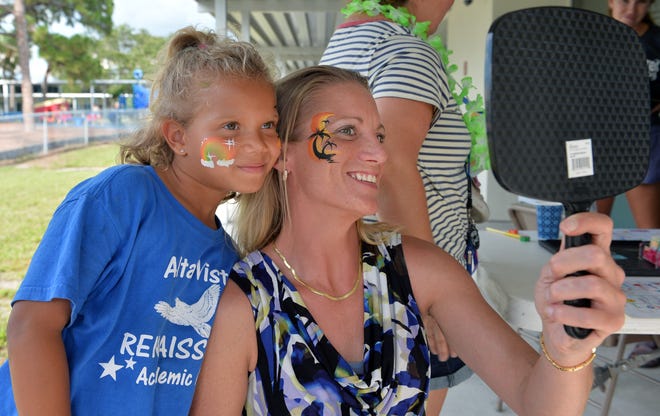
All five of her children have passed through Alta Vista’s Eagle Academy, including three this summer. Luetzow herself has studied cosmetology and business management at Alta Vista’s campus through a two-generation educational program funded by the Community Foundation.
The program, along with her Christian faith, she said, helped her turn her life around from a troubled past, while the academy has encouraged cooperative learning in her kids. It also actively paved the way for her deep involvement in their education, even as she was working.
Given the crisis in affordable child care, that’s not always the case everywhere.
When the pandemic forced the academy to close or cut back, Luetzow spent $4,000 in child care in one summer alone.
“I wouldn’t be able to work a full-time job with five kids at home if there wasn’t the availability of child care,” she said. “It wouldn’t be possible.”
A vital tool for academic success
In addition to providing family support, summer programs are more critical than ever for academic interventions, experts say.
New national testing data shows that the pandemic has widened learning gaps among children, with more students struggling far below their grade level – and the clock ticking to make up lost ground before problems snowball, according to reports.
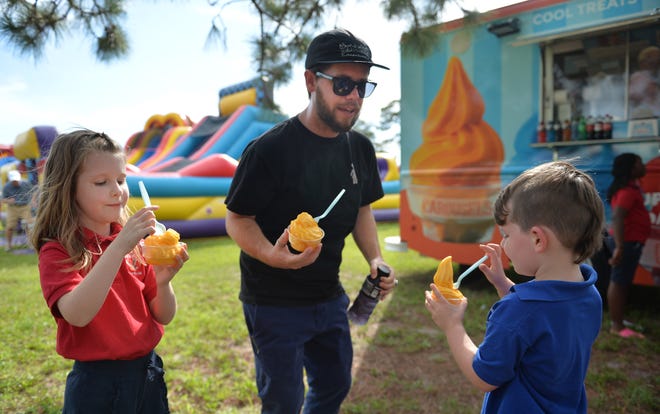
At the Boys & Girls Clubs of Sarasota and DeSoto Counties, about two-thirds of the almost 1,200 member kids enrolled in summer programs take part in Great Futures Academy, said Dawn Page, the vice president of operations. The academy, also supported by the Community Foundation, offers educational instruction and “hardcore tutoring,” Page said.
Last summer, the nonprofit’s testing results showed that about two-thirds of the Great Futures Academy participants made improvements in reading over the summer, with the rest staying at the same level.
Staffing shortages – affecting schools and early learning centers, too – reduced the number of children they could serve, forcing the clubs to open up waiting lists, she said.
“Summer programs used to be something that kids did in the summers so they weren’t out on the streets causing havoc or having parents worry about them,” Page said.
But pandemic-related learning losses – combined with the housing and child care crises and kids’ resultant behavioral issues – have changed the summer programs’ roles.
“That has evolved into something that is now vital for families,” she said.
‘This is going to get worse before it gets better’
For families of students at Sarasota’s Girls Inc., summer programs have also been a lifeline for the developmental and emotional growth of their daughters, as parents work longer hours than ever.
Angie Stringer, executive director, said funds from the Community Foundation and the Charles & Margery Barancik Foundation, among others, have been critical the past year.
Those funds not only helped provide scholarships for almost all participants, they allowed for more mental health counseling and family strengthening programs.
Still, Stringer fears that without major and ongoing community-wide interventions, the compounding effects of the pandemic and housing crisis will continue.
“I just keep thinking, this is going to get worse before it gets better,” she said.




